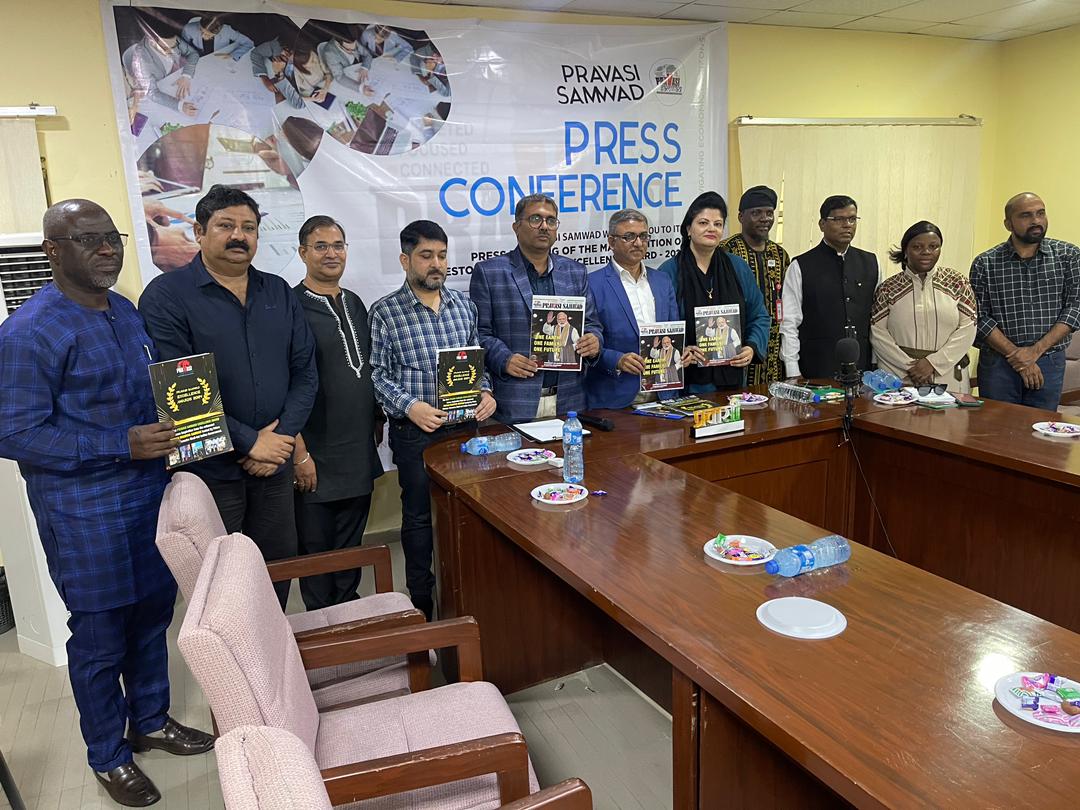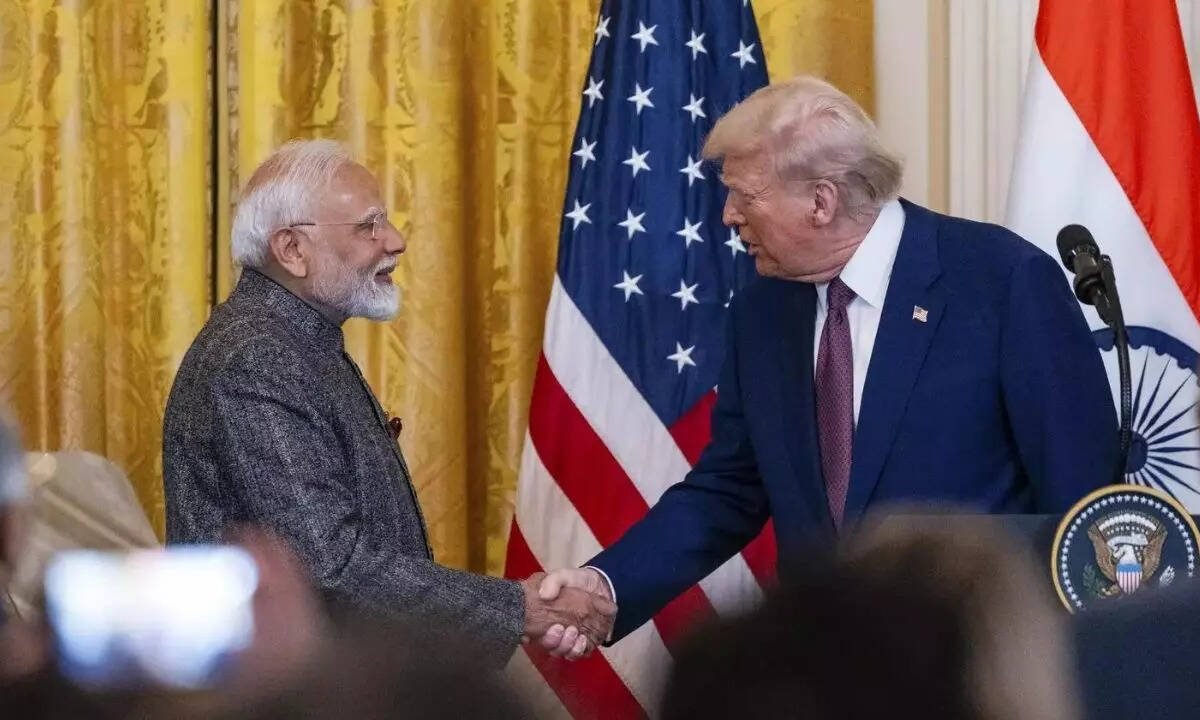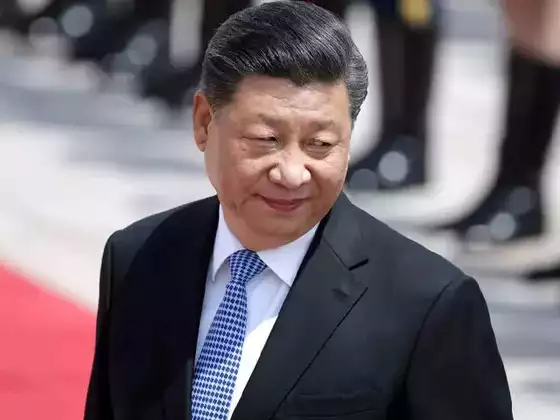Under this new regulation, which is withdrawn now, companies employing expatriates are required to pay an annual levy, with directors incurring a fee of $15,000, while other employees face a $10,000 charge
PRAVASISAMWAD.COM
Expatriates in Nigeria got a sigh of relief as the Nigerian government announced the withdrawal of the Expatriate Employment Levy (EEL) late on Saturday (March 8, 2024) evening signalling a significant policy shift that has garnered praise from the expatriate community.
This move has been hailed as a strategic decision aimed at bolstering the economy and fostering a more conducive environment for investment.
Under this new regulation, which is withdrawn now, companies employing expatriates are required to pay an annual levy, with directors incurring a fee of $15,000, while other employees face a $10,000 charge.
Members of the expatriate community have expressed their appreciation to Nigerian President Bola Ahmed Tinubu for this decision, recognizing its potential to enhance the country’s economic prospects. The withdrawal of the EEL is seen as a positive step towards improving the business climate and encouraging foreign investors to engage more actively in Nigeria’s market.
The withdrawal of the EEL serves as a testament to Nigeria’s willingness to adapt and evolve its regulatory framework in line with the changing needs of its economy and the global business landscape
President Tinubu’s leadership in this matter has been commended for its foresight and responsiveness to the concerns raised by various stakeholders. By rescinding the EEL, the government has demonstrated its commitment to promoting economic growth while ensuring that policies remain conducive to both local and foreign businesses.
This development underscores the importance of maintaining a delicate balance between incentivizing local employment and attracting foreign expertise. While the EEL was initially introduced with the intention of prioritizing Nigerian citizens in the workforce, its withdrawal reflects a pragmatic approach to fostering economic development without imposing undue burdens on businesses.
Moving forward, stakeholders anticipate a renewed focus on implementing policies that promote sustainable growth and create opportunities for all stakeholders. The withdrawal of the EEL serves as a testament to Nigeria’s willingness to adapt and evolve its regulatory framework in line with the changing needs of its economy and the global business landscape.
In a press release the Nigerian Association of Chambers of Commerce, Industry, Mines, and Agriculture (NACCIMA) said, “Following the successful Trade and Investment outreach led by President Bola Ahmed Tinubu in Qatar. The Nigerian Association of Chambers of Commerce, Industry, Mines, and Agriculture (NACCIMA), in collaboration with key stakeholders, announces a temporary step down of the recently enacted Expatriate Employment Levy (EEL) by the Federal Ministry of Interior, as administered by the Nigerian Immigration Service.”
“This was the resolution of a productive meeting held today with the Honorable Minister of Industry, Trade and Investment and the Honorable Minister of Interior. Others in attendance with the president of NACCIMA Dele Oye were the President of Petroleum Technology Association, the President of Special Economic Zones Association, the Director General of The Nigerian Turkiye Business Council, the European Union Trade delegation head, the NACCIMA Chair of Digital Trade Group and the representatives of the National Association of Small and Medium Scale Enterprises NASME,” the release said.
According to the release, it was unanimously agreed that:
a) The implementation of the Expatriate Employment Levy will be paused, allowing for further consultations with NACCIMA and other vital stakeholders.
b) A joint committee comprising members of the Ministry of Industry, Trade and Investment, the Ministry of Interior, NACCIMA, and other stakeholders will be formed to review the EEL policy.
c) The rollout of the EEL, as initially proposed, will be deferred in accordance with the resolutions made. We extend our gratitude to the Federal Government of Nigeria, the Ministry of Industry, Trade and Investment, and the Ministry of Interior for their magnanimity, understanding and their willingness to engage in dialogue and consider the implications of the EEL on the business community.
This is indicative of their commitment to creating an inviting atmosphere for both local and international investors.
NACCIMA and its partners remain dedicated to working hand in hand with the government to ensure that policies align with the nation’s economic objectives, aiming to position Nigeria as a prime destination for investments.
We advise all investors, both current and prospective, to continue with their business activities and investment plans in Nigeria with confidence. The assurances provided by both ministers during the negotiations have reinforced the Federal Government of Nigeria’s intent to enhance the investment landscape and support economic growth.
NACCIMA and its partners remain dedicated to working hand in hand with the government to ensure that policies align with the nation’s economic objectives, aiming to position Nigeria as a prime destination for investments.
“We advise all investors, both current and prospective, to continue with their business activities and investment plans in Nigeria with confidence. The assurances provided by both ministers during the negotiations have reinforced the Federal Government of Nigeria’s intent to enhance the investment landscape and support economic growth.”
***********************************
Readers











